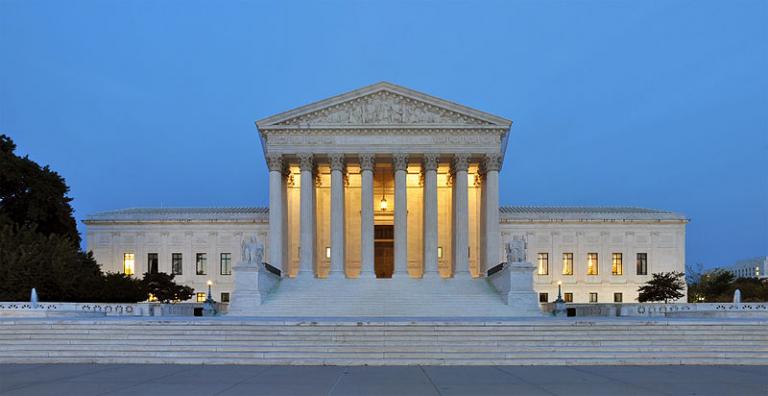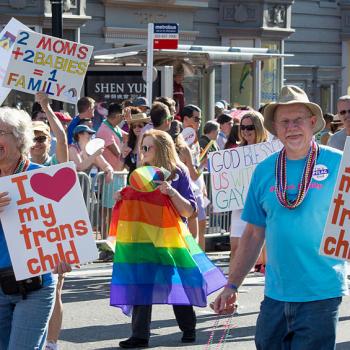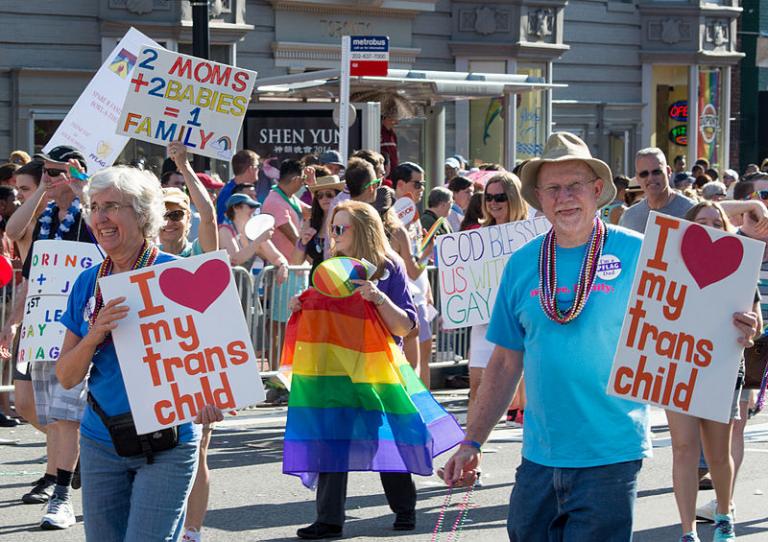
Hey, everyone — the article below might seem outdated, but I had been shopping it around for publication, got quizzical looks, and I finally concluded I don’t have the time or motivation to try to wordsmith it to make it more persuasive, if, indeed, that is possible. So please be patient with the length of it and share your reaction in the comments.
Everyone has made their pronouncements about the Bostock v. Clayton County, Georgia Supreme Court decision in which it found that discrimination against gay and transgender people violates the Civil Rights Act protections mandated by Congress in 1964. Conservatives are outraged that judges appointed with the expectation they’d follow “originalism” have become activists, instead. Progressives are celebratory.
Here’s how NBC News reported the story:
The Supreme Court ruled Monday that existing federal law forbids job discrimination on the basis of sexual orientation or transgender status, a major victory for advocates of gay rights and for the nascent transgender rights movement — and a surprising one from an increasingly conservative court. . . .
Gay rights advocates celebrated the ruling. . . .
Former Vice President Joe Biden, the presumptive Democratic presidential nominee, said the ruling was “a momentous step forward for our country,” adding that the court had “confirmed the simple but profoundly American idea that every human being should be treated with respect and dignity, that everyone should be able to live openly, proudly, as their true selves without fear.”
The New York Times further suggested that this decision was a harbringer of more to come:
“We’ve always known that our legal arguments are strong and should be accepted, but the reason it took decades for the courts to accept these arguments was because transgender people were so foreign to the courts,” said Shannon Minter, the legal director of the National Center for Lesbian Rights, who is representing transgender military members suing the Trump administration over its transgender ban on service.
That ban is just one of many policies that the administration has pursued against transgender people, including a regulation completed on Friday that lifted civil rights protections for transgender patients seeking health care, the revocation of Education Department guidance that had told schools to respect students’ gender identity in the use of bathrooms and a proposed rule forcing transgender homeless people into shelters according to their biology, not their identity.
“What the court did was send a strong rebuke to this administration’s attempt to scapegoat trans people and treat them with less than basic dignity,” Mr. Minter said. . . .
Transgender legal advocacy groups have already begun to mobilize. Transgender Legal Defense & Education Fund, which has lawsuits pending in North Carolina and Georgia, said the ruling would “immediately benefit” its challenges to state government decisions to withhold insurance coverage of transition-related health care. The organization said that it would immediately file briefs explaining how the decision affected the outcomes of those cases and “expects to bring new suits around the country.”
But would you believe me if I said that this was a ruling which actually affirms the existence of a biological definition of sex?
After all, the justices determined that to terminate a man who, for example, brings his male spouse to a company picnic, when a woman who brought her male spouse would be welcomed, was wrongly terminated on the basis of his sex because a similarly-situated woman wouldn’t have been fired. And they also determined that a man who prefers wearing a dress instead of a suit and tie, in a circumstance in which a woman wearing a dress would have been welcomed, was also wrongly terminated, because, again, there was a disparity in how he was treated, as a man, relative to how a woman was treated.
In other words, the ruling makes no judgment with respect to the core claim of transgenderism, that one’s sex is determined on the basis of one’s self-identity, and that a natal man who declares to be a woman, is such. It does not find in the constitution or the Civil Rights Act a requirement that one must use the pronoun of the transgender person’s choice, nor that those individuals be permitted to use the sex-segregated facilities (washrooms, locker rooms, etc.) of their choice, or compete athletically as the sex which they claim as their identity. It does not find a right to receive any particular form of hormone administration or surgery, neither with respect to the ability to compel hospitals to provide it nor to compel private employers or governmental entities to fund it. It is limited solely to prohibiting employers from discriminating based on how a given employee presents him/herself, when those ways are differentiated/prohibited solely due to the degree to which they do or don’t conform to sex-based norms. (That is, a suit-and-tie and a dress are both norms of professional dress, as opposed to wearing a tracksuit or cargo shorts.)
In fact, the ruling tends to reinforce the notion that a man-who-presents-as-a-woman nonetheless remains a man. The only way the Court could determine that this individual is protected under the Civil Rights Act is to frame the dispute in this manner, by defining transgenderism as a matter of a person of one biological sex presenting him/herself as if of the other sex.
Has the Court, as a result, set a precedent for future rulings, in future cases in which the plaintiff wants to compel the government, or a private entity, to recognize a transgender individual as that sex to which they have transitioned, wholly and completely? Insofar as a future court may care little for precedents which past rulings may have indirectly set, perhaps not, but it seems less likely, rather than more so, that we could find ourselves on this path.
Consider these excerpts from the decision, as written by Justice Neil Gorsuch:
The only statutorily protected characteristic at issue in today’s cases is “sex”—and that is also the primary term in Title VII whose meaning the parties dispute. Appealing to roughly contemporaneous dictionaries, the employers say that, as used here, the term “sex” in 1964 referred to “status as either male or female [as] determined by reproductive biology.” The employees counter by submitting that, even in 1964, the term bore a broader scope, capturing more than anatomy and reaching at least some norms concerning gender identity and sexual orientation. But because nothing in our approach to these cases turns on the outcome of the parties’ debate, and because the employees concede the point for argument’s sake, we proceed on the assumption that “sex” signified what the employers suggest, referring only to biological distinctions between male and female. (p. 5)
From the ordinary public meaning of the statute’s language at the time of the law’s adoption, a straightforward rule emerges: An employer violates Title VII when it intentionally fires an individual employee based in part on sex. (p. 9)
The statute’s message for our cases is equally simple and momentous: An individual’s homosexuality or transgender status is not relevant to employment decisions. That’s because it is impossible to discriminate against a person for being homosexual or transgender without discriminating against that individual based on sex. Consider, for example, an employer with two employees, both of whom are attracted to men. The two individuals are, to the employer’s mind, materially identical in all respects, except that one is a man and the other a woman. If the employer fires the male employee for no reason other than the fact he is attracted to men, the employer discriminates against him for traits or actions it tolerates in his female colleague. Put differently, the employer intentionally singles out an employee to fire based in part on the employee’s sex, and the affected employee’s sex is a but-for cause of his discharge. Or take an employer who fires a transgender person who was identified as a male at birth but who now identifies as a female. If the employer retains an otherwise identical employee who was identified as female at birth, the employer intentionally penalizes a person identified as male at birth for traits or actions that it tolerates in an employee identified as female at birth. Again, the individual employee’s sex plays an unmistakable and impermissible role in the discharge decision. (p 9 – 10).
This paragraph is, it seems to me, key. Justice Gorsuch does not make any claim of fact as to whether the individual in question is in fact a woman as the plaintiff identifies. The logic of the finding, in fact, hinges on a determination that this individual’s sex is that of a male. To find that this is a ruling of sex-based discrimination, one must read this penultimate sentence differently: “the employer intentionally penalizes a [man] for traits or actions [wearing dresses] that it tolerates in a [woman].” Without this re-reading, the entire argument falls apart. To read it otherwise, as “the employer intentionally penalizes a [woman who had been assigned male at birth] for traits and actions that it tolerates in a [woman whose gender identity was never in conflict with her gender marker as assigned by others],” means that Gorsuch’s argument, that transgender discrimination is sex discrimination, utterly fails, because that discrimination then becomes discrimination not between women and men but between two different categories of women.
Gorsuch continues by affirming that the ruling says nothing about locker rooms or rights of religious entities:
The employers worry that our decision will sweep beyond Title VII to other federal or state laws that prohibit sex discrimination. And, under Title VII itself, they say sex-segregated bathrooms, locker rooms, and dress codes will prove unsustainable after our decision today. But none of these other laws are before us; we have not had the benefit of adversarial testing about the meaning of their terms, and we do not prejudge any such question today. Under Title VII, too, we do not purport to address bathrooms, locker rooms, or anything else of the kind. The only question before us is whether an employer who fires someone simply for being homosexual or transgender has discharged or otherwise discriminated against that individual “because of such individual’s sex.” (p. 31)
Because RFRA operates as a kind of super statute, displacing the normal operation of other federal laws, it might supersede Title VII’s commands in appropriate cases. See §2000bb–3.
But how these doctrines protecting religious liberty interact with Title VII are questions for future cases too. Harris Funeral Homes did unsuccessfully pursue a RFRA-based defense in the proceedings below. In its certiorari petition, however, the company declined to seek review of that adverse decision, and no other religious liberty claim is now before us. So while other employers in other cases may raise free exercise arguments that merit careful consideration, none of the employers before us today represent in this Court that compliance with Title VII will infringe their own religious liberties in any way. (p. 32 – 33)
How might Gorsuch’s reasoning apply to these other cases? What might he have said about a case seeking to establish a right for transgender people to use the locker rooms corresponding to the sex with which they identify, or play on the corresponding athletic teams? Remember, Gorsuch has not determined that transgender female-identifying plaintiffs must be accorded legal recognition as women and the logic of his decision rests on the viewpoint that they remain men.
He did not create a new “right” out of whole cloth, in the fashion of Justice Kennedy’s Obergefell v. Hodges opinion, in which “liberty,” in the Fourteenth Amendment’s prohibition of the deprivation without due process of “life, liberty, or property,” was declared to include not only freedom from imprisonment but “certain personal choices central to individual dignity and autonomy, including intimate choices that define personal identity and beliefs.” Another court could indeed use this decision as precedent to declare that mandatory transgender recognition is another item “central to individual dignity,” but the Gorsuch decision has not provided any ammunition on this point.
Was Gorsuch right in his interpretation of the Civil Rights Act and the process for interpreting the relevant law and precedents? I am not a lawyer and I make no claim as to the appropriateness of the Court’s decision, in terms of its literalism. But neither do I think it’s a wholesale betrayal of traditionalists in favor of the LGBT agenda.
Image: https://commons.wikimedia.org/wiki/File:Panorama_of_United_States_Supreme_Court_Building_at_Dusk.jpg; Joe Ravi [CC BY-SA 3.0 (https://creativecommons.org/licenses/by-sa/3.0)], from Wikimedia Commons











